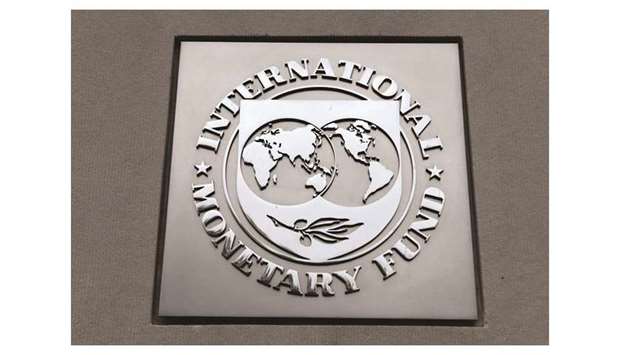Qatar will return to growth path in 2021, aided by domestic demand and higher gas production, while its ambitious structural reforms underpin the economic diversification to enhance long-term potential growth, according to the International Monetary Fund (IMF).
"A gradual recovery -- with real GDP (gross domestic product) growth projected at 2.7% in 2021 -- will be supported by increasing gas production and the rebound in domestic demand," the Bretton Woods’ institution said after its Article IV (virtual) consultation with Qatar.
Highlighting that risks to the outlook are mainly driven by the global outlook and titled to the downside, it said they stem from uncertainty about the global growth recovery, success and speed of vaccination and pandemic resolution, and oil prices, whose outlook depends on the global recovery.
The upside risks to the outlook arise from a successful resolution of the regional diplomatic rift and a stronger-than-envisaged global growth rebound, it said.
The economy is projected to contract by about 2.5% in 2020 due to a lower global demand for hydrocarbons and subdued domestic activity during the lockdown in the spring.
With lower hydrocarbon exports, the current account balance is forecasted to turn into a deficit of about 1.5% of GDP this year, it said, adding "sizable" financial inflows allowed for a buildup in international reserves.
“The proactive reprioritisation of spending helped limit the fiscal deficit to a projected 2.5% of GDP in 2020. Postponing un-awarded contracts on non-core, non-World Cup related investment projects and savings in operating spending helped to mitigate the impact from the lower oil price and a slowdown in economic activity," it said.
The $10bn international bond issuance in April attracted significant investors’ interest and allowed Qatar to preemptively cover its external financing needs, it said.
“The ambitious structural reform agenda underpins Qatar’s economic diversification efforts to enhance long-term potential growth," IMF said.
The abolishment of the Kafala (sponsorship) system and strengthening labour protection are welcomed steps in facilitating labour mobility and spur productivity, it stressed.
These measures along with the new realty and public-private partnership laws should help Qatar improve its competitiveness, it said, adding reforms towards strengthening minority investors’ protection, contract enforcement, and insolvency resolution will further improve Qatar’s business environment, mobilise foreign direct investment, and support economic diversification.
The 2021 budget projects a deficit of around 6% of GDP, maintaining support to the economy. According to the published extended budget statement, revenues are budgeted to decline by 24% with respect to the 2020 budget due to a delayed pass-through from oil to gas prices, lower corporate tax receipts, and a prudent oil assumption.
The expenditures are projected to decline by 8% mainly driven by lower capital spending (a 20% decrease compared to 2020) as World Cup-related projects near completion.
"As the recovery consolidates, the efforts to mobilise non-oil revenues and optimise expenditures should continue. A gradual fiscal consolidation would help preserve net public sector wealth," it said.
Highlighting that risks to the outlook are mainly driven by the global outlook and titled to the downside, it said they stem from uncertainty about the global growth recovery, success and speed of vaccination and pandemic resolution, and oil prices, whose outlook depends on the global recovery.
The upside risks to the outlook arise from a successful resolution of the regional diplomatic rift and a stronger-than-envisaged global growth rebound, it said.
The economy is projected to contract by about 2.5% in 2020 due to a lower global demand for hydrocarbons and subdued domestic activity during the lockdown in the spring.
With lower hydrocarbon exports, the current account balance is forecasted to turn into a deficit of about 1.5% of GDP this year, it said, adding "sizable" financial inflows allowed for a buildup in international reserves.
“The proactive reprioritisation of spending helped limit the fiscal deficit to a projected 2.5% of GDP in 2020. Postponing un-awarded contracts on non-core, non-World Cup related investment projects and savings in operating spending helped to mitigate the impact from the lower oil price and a slowdown in economic activity," it said.
The $10bn international bond issuance in April attracted significant investors’ interest and allowed Qatar to preemptively cover its external financing needs, it said.
“The ambitious structural reform agenda underpins Qatar’s economic diversification efforts to enhance long-term potential growth," IMF said.
The abolishment of the Kafala (sponsorship) system and strengthening labour protection are welcomed steps in facilitating labour mobility and spur productivity, it stressed.
These measures along with the new realty and public-private partnership laws should help Qatar improve its competitiveness, it said, adding reforms towards strengthening minority investors’ protection, contract enforcement, and insolvency resolution will further improve Qatar’s business environment, mobilise foreign direct investment, and support economic diversification.
The 2021 budget projects a deficit of around 6% of GDP, maintaining support to the economy. According to the published extended budget statement, revenues are budgeted to decline by 24% with respect to the 2020 budget due to a delayed pass-through from oil to gas prices, lower corporate tax receipts, and a prudent oil assumption.
The expenditures are projected to decline by 8% mainly driven by lower capital spending (a 20% decrease compared to 2020) as World Cup-related projects near completion.
"As the recovery consolidates, the efforts to mobilise non-oil revenues and optimise expenditures should continue. A gradual fiscal consolidation would help preserve net public sector wealth," it said.


